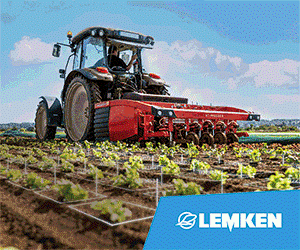Low-carbon production, harvest robots and disease surveillance are among the industrial research studies that have attracted backing in the first round of funding under Defra’s ‘small research and development partnership projects,’ part of its Farming Innovation Programme.
Projects had to focus on sustainability, resilience, productivity and net zero ambitions.
Potato grower Branston will lead a partnership to find practical, commercially viable low-carbon solutions for growing, storing and transporting potatoes, without compromising quality. Its project, TuberNetZero, has been awarded £1.4 million.
Muddy Machines, which has already designed a prototype harvester for asparagus, has ambitions to develop ‘a herd’ of electric robots for vegetable harvesting. Its project is being supported with a grant of £1.16m.
Work on a ‘sentinel crop disease surveillance’ network, led by G’s Fresh, has won just over £746,000. Data collected from in-field sensing devices will give an early warning of the presence of pathogens.
Initial funding has also been awarded in Defra’s ‘research starter pilot’ competition.
Collaborative water sharing between individual growers, without ‘the high transactional costs of water trading’, will be investigated in a project led by consultant Lindsay Hargreaves, which has secured £42,000. Using businesses in the Lark catchment in Eastern England as a case study, it will promote efficient allocation of water to reduce pumping costs.
Soil Benchmark will use its grant of £45,000 to look at how to share and compare data from soil sampling to inform farmers how to improve their soils.
A project led by T Hammond Farms wants to develop an environmental model to understand how landscape and crop history factors influence pest pressure from the first and second generations of swede midge. It is being supported with £29,000. The pest attacks various brassicas, resulting in distorted growth, blindness and scarring. The work will help to design control strategies based on a better knowledge of its biology and behaviour.
Further funding, of up to £3 million per project, for small R&D partnerships is being made available in a second round, which opened at the end of August.
Applications are also being invited for grants for ‘feasibility projects’ worth between £200,000 and £500,000 to support R&D through an idea’s testing phase. Winning projects from the first round of this competition included courgette and broccoli harvesting technology, and potato cyst nematode and blight control.














